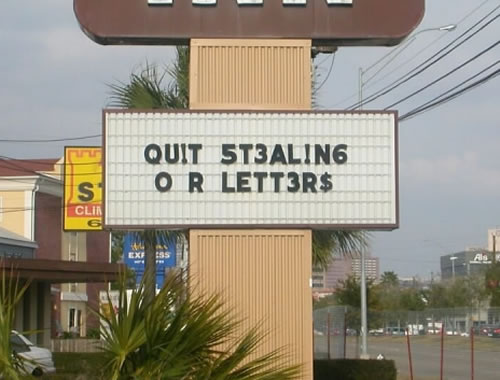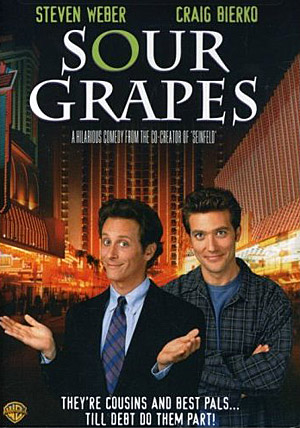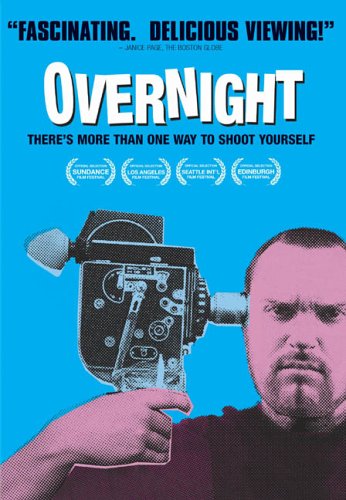As I'm sure I've mentioned before, I love audiobooks. At least audiobooks whose narrators know what they're doing. There are some audiobooks whose narrators are just so terrible that it ruins the story. Oftentimes it's because they have a monotone voice, or they don't put any inflection into the characters' voices, or whatever. And sometimes, it's the book itself that just isn't very good.
The audiobook I'm currently listening to is Resolution by Robert B. Parker. It's a western. The narrator is Titus Welliver, who does a decent job. And it's a short book, only four discs, which isn't surprising if you're familiar with Parker's work. And if you are familiar with Parker's work, you know how he likes to incorporate speech tags for every speaking part. Here the opening to the Resolution:
I was in the Blackfoot Saloon in a town called Resolution, talking with a man who owned the saloon about a job. The owner was wearing a brocade vest. His name was Wolfson. He was tall and thin and sort of spooky-looking, with a walleye.
“What’s your name?” Wolfson said.
“Hitch,” I said. “Everett Hitch.”
“How long you been in Resolution?” Wolfson said.
We were at the far end of the big mahogany bar, sipping whiskey that I had bought us.
“’Bout two hours,” I said.
“And you came straight here?” Wolfson said.
“Ain’t that many choices in Resolution,” I said.
“There’s some others,” Wolfson said. “But they ain’t as nice. Tell me about yourself. What can you do?”
“Went to West Point,” I said. “Soldiered awhile, scouted for Wells Fargo, did some marshaling with Virgil Cole.”
And so on and so forth. I don't know at what point in my reading development I started to read-over these unneeded speech tags, but I know it's been years, and when I read a book like this, my eyes automatically skip them. After all, it's obvious who is speaking to whom. If it's not obvious, then yes, a speech tag is needed. But only one or two. Not -- and let's count these, shall we? -- eight in the first 150 words of a novel.
Of course, when listening to an audiobook, you're at the mercy of the narrator, and unfortunately Mr. Welliver goes through every "he said" and "she said" written. Which is expected, yes, but still, it gets real annoying real fast.
Elmore Leonard's famous 10 rules of writing talks about this. It's number 3, actually:
Never use a verb other than "said" to carry dialogue.
The line of dialogue belongs to the character; the verb is the writer sticking his nose in. But said is far less intrusive than grumbled, gasped, cautioned, lied. I once noticed Mary McCarthy ending a line of dialogue with ''she asseverated,'' and had to stop reading to get the dictionary.
And Leonard is, without a doubt, one of the best writers out there, especially when it comes to dialogue. Here's the opening to LaBrava:
“He’s been taking pictures three years, look at the work,” Maurice said. “Here, this guy. Look at the pose, the expression. Who’s he remind you of?”
“He looks like a hustler,” the woman said.
“He is a hustler, the guy’s a pimp. But that’s not what I’m talking about. Here, this one. Exotic dancer backstage. Remind you of anyone?”
“The girl?”
“Come on, Evelyn, the shot. The feeling he gets. The girl trying to look lovely, showing you her treasures, and they’re not bad. But look at the dressing room, all the glitzy crap, the tinfoil cheapness.”
“You want me to say Diane Arbus?”
“I want you to say Diane Arbus, that would be nice. I want you to say Duane Michaels, Danny Lyon. I want you to say Winogrand, Lee Friedlander. You want to go back a few years? I’d like very much for you to say Walker Evans, too.”
“Your old pal.”
“Long, long time ago. Even before your time.”
“Watch it,” Evelyn said, and let her gaze wander over the eight-by-ten black and white prints spread out on the worktable, shining in fluorescent light.
“He’s not bad,” Evelyn said.
Maurice sighed. He had her interest.
See the difference between the two openings in terms of speech tags? Of course you do. And while I love Elmore Leonard and appreciate his ten rules, I don't agree that you must always use "said." There are times when murmur, mutter, whisper, shout, yell, and the like are appropriate. But when in doubt, always use said.
Now, another thing worth mentioning is redundancies in speech tags, but that's a whole ’nother post in itself. Stuff like "I don't understand," he said, confused and "Yes, I think so too," she agreed. See?
* * *
On a Hint Fiction related note, I was interviewed by South Coast Today about, well, Hint Fiction.
* * *
As the year ends, it means award season is upon us, and Nick Mamatas gives us the cold and hard reality of most major awards. In the comments section he sums it up nicely:
Well, that's the thing to get. You think the Hugos mean something? You think publishing stories in top magazines like Postscripts (where it originally appeared) or Baen's Universe (where it appeared two months later because apparently so few stories out there this one needed immediate reprinting) means a damn thing? You think there are enough intelligent readers out there that such crap when it does get mistakenly published certainly won't be acclaimed? Wrong!
So when you get your stories out there and start blogging for support for the Hugos and Nebulas, what are you doing? You are pointing at that shitty story and saying, "Me too! I should be with that!" When you spend hundreds of bucks on Worldcon and make sure to network with that editor or this agent and be sure to "like" all the right Facebook status updates and line up on one or the other side of a Internet slapfight what you are doing is working to make sure you are counted right next to that story and its Hugo nomination.
It's the cure for King of the Shitheapism.



